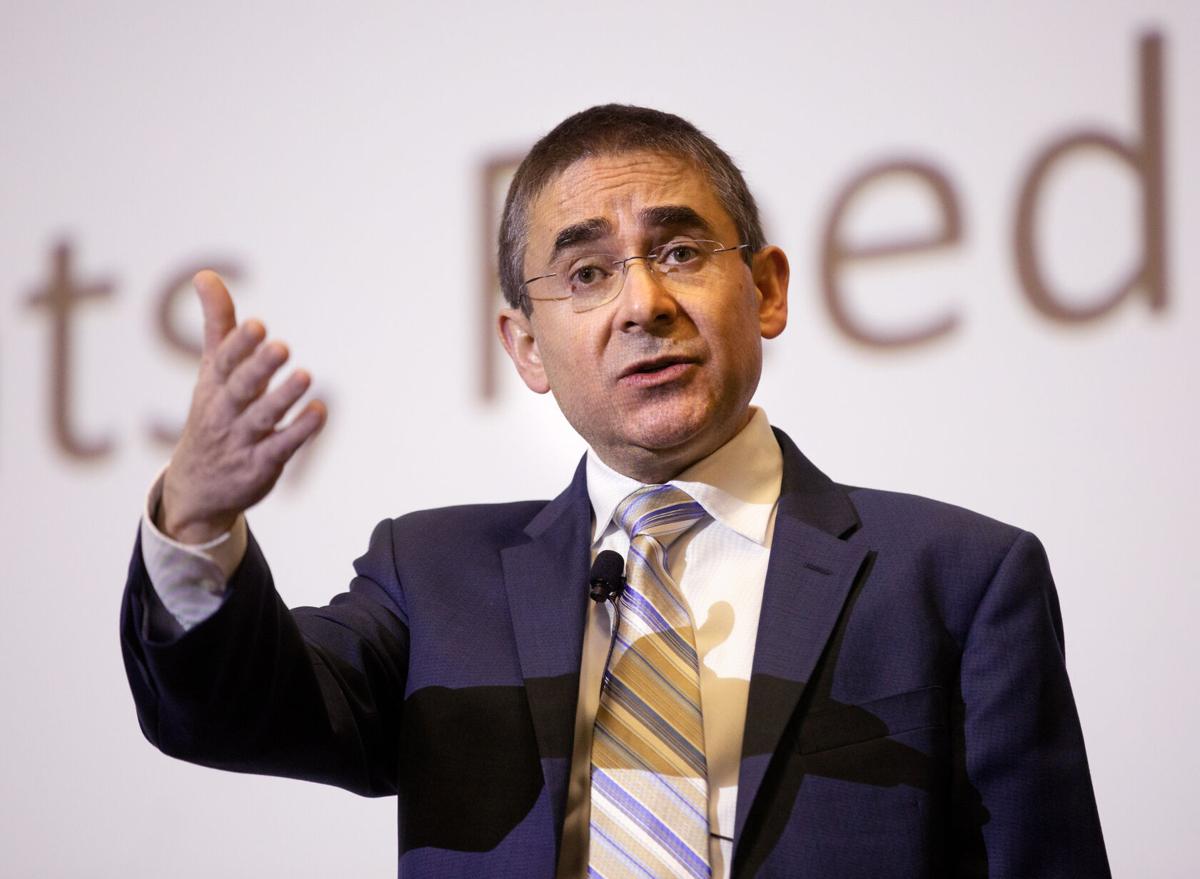The University of Arizona would have a “big name provost” if it hired Fouad Abd-El-Khalick, the finalist joked to a crowd of about 75 at his official candidate talk on campus on Tuesday.
Though he isn’t widely known outside of academic circles, Abd-El-Khalick, the current dean of the School of Education at the University of North Carolina Chapel Hill, joked that his long last name could be a good selling point.
Abd-El-Khalick, who spoke to an additional 300 people watching the presentation via Zoom, spent the talk discussing his background and experience in his final push to be named provost. The other two candidates, who have yet to be unveiled, will visit campus to do the same in the coming weeks.
“I could not think of a place with a better fit as I’m thinking about my next stage in my professional career,” he said. “I’m looking forward to the possibility of engaging in a conversation around what would be the next decade for Arizona as you continue to grow.”
Despite the $177 million deficit at the university, Abd-El-Khalick remained optimistic about the path forward.
“I sincerely believe that you have what it takes to be the leading preeminent political research university,” he said, adding that the UA is “one of the best hidden secrets.”
As for what he’d do to help reign in the financial crisis?
“I hope that when we do this work, when you do this work here, you’re going to (be kind) to your most vulnerable and find a way to distribute the load such that everyone somehow feels a little bit of pain to lessen severe pain,” he said.
After graduating from the American University of Beirut, Lebanon and he came to the United States in 1995 to earn his PhD in science education from Oregon State University. He returned to Lebanon to teach before taking a job at the University of Illinois at Urbana Champaign in 2000. After working his way up at the university, he was hired in 2016 to helm the School of Education at UNC.
Abd-El-Khalick said that his time at University of Illinois and UNC have impacted his experience and expertise.
“I’m deeply committed to the values and the research teaching and service mission of these universities,” he said. “We do have the bandwidth and expertise to take on the most challenging problems and questions that face humanity engaged in leading edge research and creative activities.”
The role of the provost, Abd-El-Khalick said, is “as advocate in chief for faculty, staff students and academic leaders.”
“I think of the provost as a convener,” he said. “This is the person who works across the whole campus community, weaving across all these different and amazing things going on to make sure we’re all pulling in the same direction.”
One of the main components of Abd-El-Khalick’s presentation was his commitment to diversity.
During his tenure at UNC, he increased percentage of faculty who identified as racial and ethnic minorities from 21% to a record-high of 32%. If you expand the pool to include national origin and sexual identity in measures of diversity, the number is 43%, making the School of Education one of the most diverse at the whole university.
Abd-El-Khalick said he sees diversity as “layered” into every aspect of on-campus life.
“The traditional archetype of a student these universities have been built (around) is different,” he said. “It’s a different generation (now), with a different set of students: non-traditional, first-generation, veterans, students with children. It’s important for us to think about providing support.”
Part of the ways to provide that support, he said, was through philanthropy. Abd-El-Khalick pointed to the $4.25 billion campaign that UNC Chapel Hill started about eight years ago, which was the largest for a public university in the south. The campaign, which he helped fundraise for, closed with $5 billion.
“Philanthropy is a huge, huge dimension for us,” he said. “You have amazing opportunities; you have 300,000 living alumni.”
He added that 30% of his job as dean of the UNC School of Education was working on fundraising. He helped bring on a fundraising team that brought in $8.2 million in one year to the School of Education; that was a twice the historical record for the school.
“As far as I’m concerned, part of the position description of deans and academic leaders is fundraising,” he said. We need to also invest in our faculty and create ambassador programs to train our faculty on how to work with donors.”
Part of the importance of philanthropy, he added, was to help assist the mission of the land-grant university.
“It’s about being there in partnership with the communities, particularly through outreach work,” he said when asked by an audience member about his thoughts on the land-grant mission. “The philanthropic training is fulfilling this in terms of serving underserved communities out there.”





